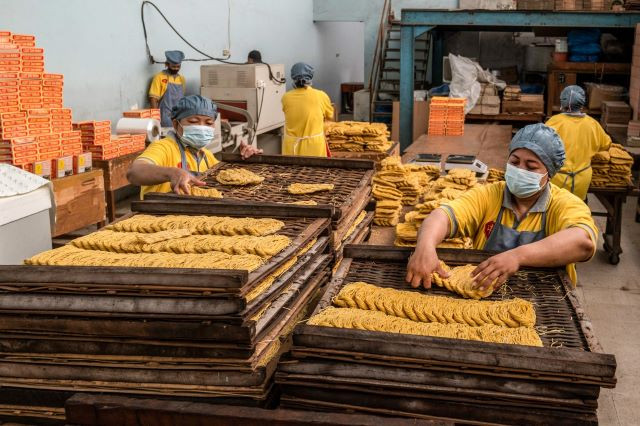Popular Reads
Top Results
Can't find what you're looking for?
View all search resultsPopular Reads
Top Results
Can't find what you're looking for?
View all search resultsEditorial: En route to Paris
There is enough time to smooth the rough edges
Change text size
Gift Premium Articles
to Anyone

T
here is enough time to smooth the rough edges. Ministers and top officials from over 190 nations attending the UN climate talks in Lima, Peru, should immediately act on thorny issues, which have again emerged and could jeopardize the talks.
The momentum is there. Just last month, the world's two-biggest emitters, China and the US, made a breakthrough pact to slow down global warming and in the process, the deal has injected fresh blood, raising hope that a new legally binding climate treaty may actually come out of the Paris summit next year.
But governments have yet to agree on what information regarding greenhouse gas-reduction pledges they should provide for the Paris agreement. Rifts also emerged following demands to set up a review to analyze and compare emissions targets ahead of Paris.
If a new treaty is inked in Paris next year, taking effect five years later in 2020, the governments should start agreeing on a common period that the initial greenhouse gas emissions-cut pledges would cover ' whether a five-year commitment period as pushed by the US, which has set its target for 2025, or a 10-year period as preferred by the EU, which has set a 2030 target.
But first, something should be done to deal with the thorniest issues ' the money and the blame game ' or everything will go up in smoke.
In the first week, time was spent arguing about money. Rich countries, which in 2009 agreed to commit US$100 billion annually by 2020, have been resisting additional financial commitments to assist poor countries in dealing with climate-change impacts, while developing countries argue that the financing is far from enough to take action.
One of the biggest strides made at the talks was actually the pledging of some $10 billion by rich countries to the Green Climate Fund, a key channel of money to help poor countries deal with climate change and its impacts.
The poor countries' demand for money does make sense. Last Friday, the UN's environmental agency, UNEP, reported that the costs borne by poor countries to adjust to the warming climate would be twice or even three times higher than the earlier estimate of $70 to $100 billion. The report cited new studies that estimated the costs could possibly reach $500 billion, 'a powerful reminder that the potential cost of inaction carries a real price tag,' UNEP director Achim Steiner said.
The blame game is getting hotter by the minute. The rich countries also want to ensure that the future climate treaty requires all to take action ' not just developed countries as stipulated by the now-expired Kyoto Protocol. But developing and poor countries insist that the rich are to blame for global warming.
The negotiators only have to realize, as UN climate chief Christiana Figueres said, 'Every single one of us can just look out the window, open the door and see the effects of climate change,' she said. 'Because there is not one country that is exempt.'
In Lima, with the talks set to end on Dec. 12, it is make or break time. It is time to change the way the game is played: fast.









